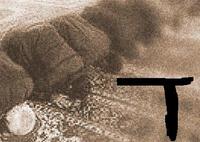
Verses 49-56
WEEK: I II III IV V VI
July 27: Verse 55--in reading the NLT this morning ("I reflect at night on who you are, O LORD, and I obey your law because of this.") I see they have translated this verse with a causal connection. Does this verse support a causal connection between meditation and obedience?
July 26: Verse 53--are those who forsake God's law from Israel or elsewhere?
July 25: Verse 54--the psalmist says that God's statutes are his songs. This is very different from our songs (and mean hymns, not just choruses--we must discern both by the Word).
July 24: Verse 52--there is a connection to tradition and longstanding community: "...your rules from of old..."
July 23: Verses 50 and 56--in verse 50 the life-giving promises give comfort, and in verse 56 obedience to God's precepts is a blessing. This reminds me of feedback loops.
July 22: Verses 52-53--What is the relationship between taking comfort in God's rules and having hot indignation because of the wicked? God is a perfect intertwining of mercy and justice and the more we know him, the more we balance our mercy and justice. There are situations and people in this world who are evil. These situations and people deserve hot indignation, but my doing of this indignation is only righteous when I spend time loving God and his word.
July 21: Verse 53--"Hot indignation seizes me..." I wonder, when I feel hot indignation, is it for the sake of God's law or because I've been offended in some way. I think it is likely the latter.
All verses are quoted from the ESV.





